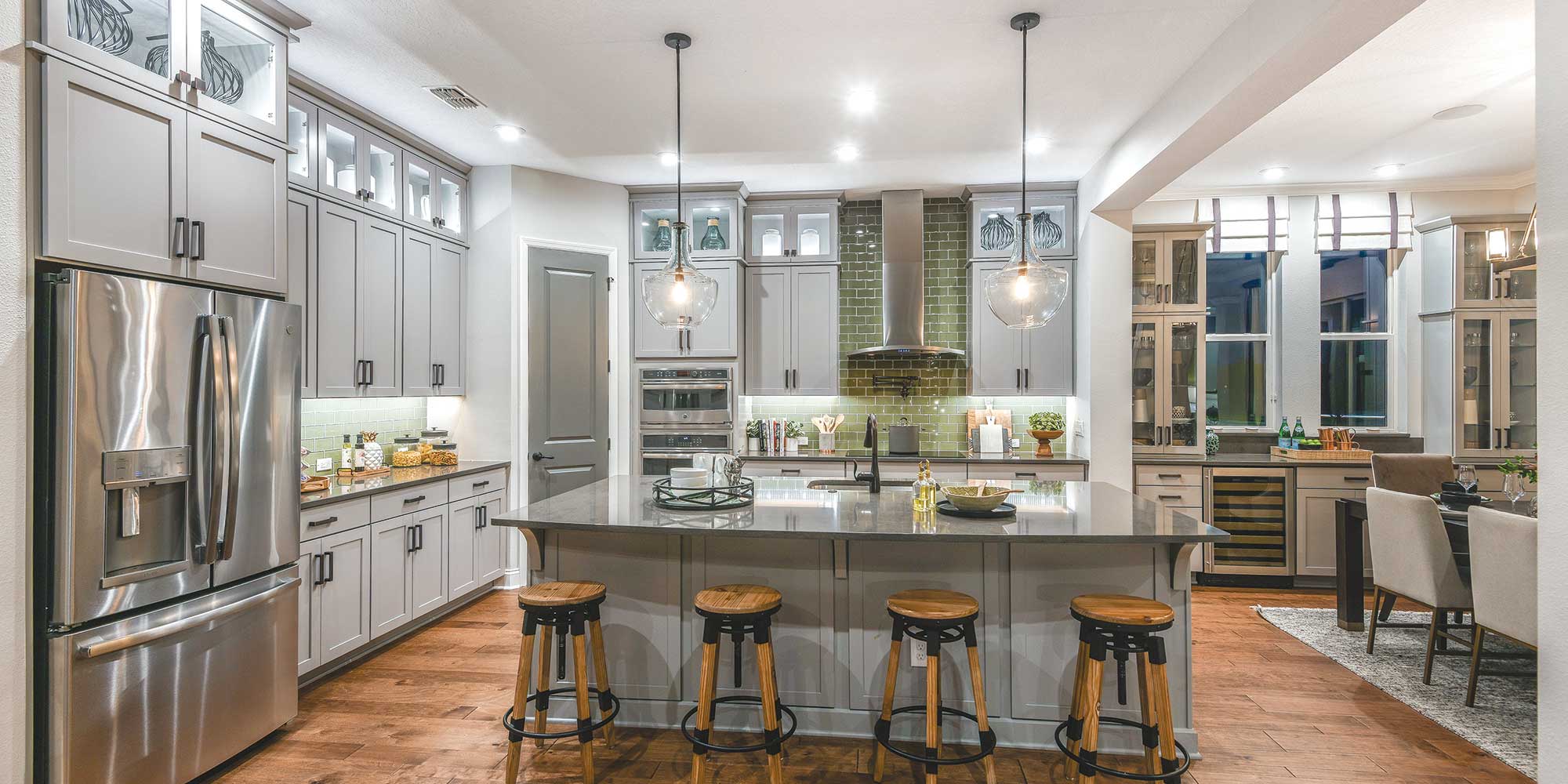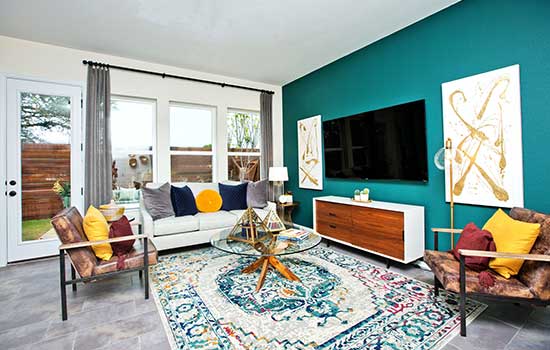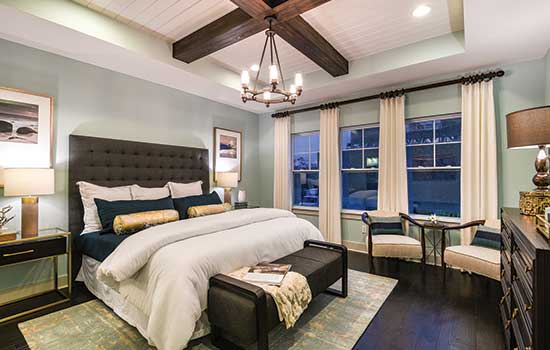Find Your True Colors

Selecting a color scheme for your home is one of the most important steps in decorating as it establishes the overall tone and feel of your space. While there’s not one way to create an ideal color palette, incorporating a few design principles will help you to seamlessly pull together your space like a pro!
Think Vertically
Interior spaces should resemble the outside world, meaning the darkest colors are at our feet and getting lighter as you look up. So, how do you apply that theory inside your home? Darker colors are grounding, making them ideal for flooring options, while a medium value is great for walls and the lightest shade is optimal on the ceiling. For example, a winning combination would include rustic, dark wood flooring paired with walls in a warm, buttery color and a light beige ceiling. The same theory works when you think about a kitchen – a dark grey island anchors a space while upper cabinetry in a soft white adds an airy feel.
Color Your (Home) Life

Color Your (Home) Life
Now that you understand the formula behind color selections, it’s time to determine your wall color. One tried-and-true option is finding inspiration from an item you want to highlight – from a rug to artwork – and make one of the colors in a favorite item your dominant color for the space. If it’s a bold choice, use it sparingly as an accent wall, or opt for a more muted hue on multiple walls. To help determine the right color, rely on the paint chips from the store that include varying shades of a single hue. Begin with your color inspiration and then select a shade that’s two to three shades lighter. By doing this, you’re creating layers of interest within your design scheme.
Don’t Go Bold
With your wall color scheme set, it’s time to focus on the furniture. These big-ticket items are ones that you won’t be replacing often, so it’s important to get the best bang for your buck by selecting solid or textured fabrics rather than flashy prints that can quickly date your decor. This doesn’t mean you have to have a beige sofa, it just needs to be a “neutral” for your space and should be the right tone value to go with everything else in the room. For instance, a robin’s egg blue sofa will look great against neutral grey walls with yellow accents.
Accents Pack a Punch
Accents are the final piece de resistance for any space and should account for 10% of your overall design scheme. This is where you can add personality with everything from accent pillows in fun patterns to a bold splash of color like orange in a glass vase or a striking piece of art. Stick with one pop of color for accents and then add various metallic touches around the room with items like frames or candle holders to pull it all together.
With some basic color theory knowledge, you’re ready to create a palette that looks well-coordinated and is a reflection of your style!
Accents Pack a Punch





